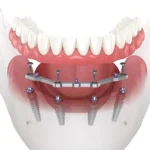
What Are the Signs Your Child Might Need a Hearing Test?
Hearing is a critical component of a child’s development, particularly in speech, learning, and communication. Recognizing signs of potential hearing loss early can ensure timely intervention and improve your child’s quality of life. Here are some indicators that a child might benefit from a professional hearing assessment.
- Delayed Speech Development
Children with hearing difficulties may experience delays in speech and language milestones.
- Struggling with Words: Difficulty forming words or limited vocabulary can indicate that a child isn’t hearing clearly.
- Mispronunciation: Problems with pronunciation might suggest that certain sounds are not being heard accurately.
- Slow Sentence Formation: A noticeable lag in constructing sentences could be linked to auditory challenges.
Monitoring speech patterns closely can help identify whether hearing issues may be contributing to developmental delays.
- Recurring Ear Infections
Ear infections are common in children, but chronic infections might impact hearing.
- Persistent Fluid Buildup: Repeated infections can cause temporary or even long-term hearing problems.
- Complaints of Discomfort: Ear pain or a child frequently tugging at their ears can indicate ongoing issues.
- Impact on Hearing Clarity: Children with untreated infections may struggle to hear certain frequencies.
If infections occur frequently, a hearing test is often recommended to evaluate any underlying effects.
- Difficulty in Following Instructions
Challenges in understanding verbal directions could signal hearing concerns.
- Misinterpreted Commands: A child may misunderstand or fail to follow spoken instructions.
- Trouble in Noisy Environments: Struggling to process words in classrooms or crowded spaces might indicate an issue.
- Frequent Repetition Requests: Repeatedly asking for directions to be clarified can highlight auditory problems.
This difficulty, often mistaken for inattentiveness, can be a sign of hearing loss.
- Behavioral Changes
Certain behaviors can suggest potential hearing challenges.
- Preference for Loud Volumes: Consistently turning up the volume on devices could indicate reduced hearing sensitivity.
- Lack of Response: A child who doesn’t react when called might not be hearing properly.
- Frustration or Withdrawal: Difficulties in communication might cause frustration or reluctance to participate in social settings.
Being attentive to such behaviors can help parents identify when to seek help.
- Family History of Hearing Issues
Genetics often play a role in a child’s hearing health.
- Hereditary Factors: A family history of hearing loss increases the likelihood of similar issues in children.
- Congenital Hearing Conditions: Some hearing challenges are present from birth and might not become apparent until later.
For families with a history of hearing concerns, regular checkups are particularly important.
- Challenges in School Performance
Hearing difficulties often manifest as academic or behavioral struggles in school.
- Difficulty with Lessons: Children with hearing issues may have trouble understanding spoken instructions.
- Feedback from Teachers: Educators might notice that a child is inattentive or requires constant repetition of instructions.
- Reading and Speech-Related Struggles: Falling behind in these areas can be connected to poor auditory processing.
A professional hearing evaluation can determine if these challenges are related to auditory health.
- Why Consider a Hearing Test?
A hearing test can provide clarity on whether your child’s struggles are due to auditory issues. For example, Audiologie children’s hearing tests involve safe, non-invasive procedures tailored to assess and diagnose hearing concerns in children. These tests are critical for addressing issues before they impact long-term development.
Conclusion
Early detection of hearing issues is key to ensuring your child’s developmental success and overall well-being. By being aware of these signs and seeking professional assessment, parents can provide the necessary support. Hearing tests serve as a proactive step in maintaining a child’s auditory health and ensuring their future communication skills flourish.


















